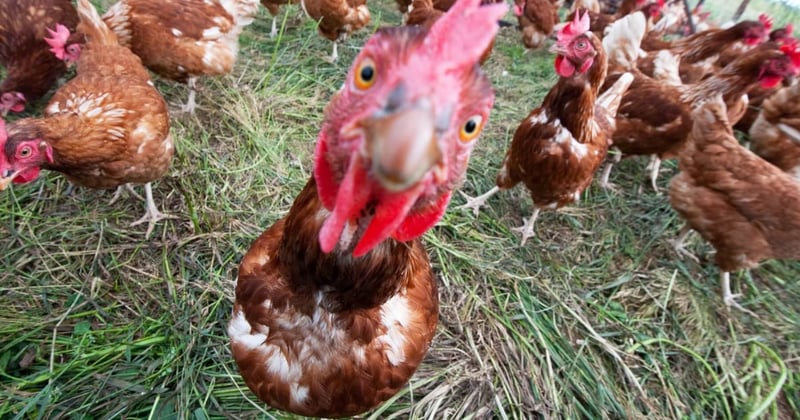
Animal groups unite to combat colony cage misinformation
News
At the beginning of this year, a ban on battery cages in Aotearoa New Zealand came into force. However, colony cages, another type of cage that also fail to meet the welfare needs of hens, are legal and in use.
While celebrating progress on banning battery cages, it is important to be accurate about the conditions some hens still experience - so New Zealanders aren’t misled by labels such as “colony laid” or “fresh colony eggs”.
Colony cages typically house about 60 hens, with the cages stacked on top of each other. These conditions do not meet the animal welfare needs of intelligent and inquisitive hens.
Now, thanks to your support, World Animal Protection has joined VAWA, SPCA, the New Zealand Animal Law Association, HUHA animal shelter, Aotearoa Liberation League and Animals Aotearoa in an open letter calling for correct labelling on eggs.
Ben Pearson, Country Director Aotearoa New Zealand, World Animal Protection said:
“We all agree that colony cages do not meet hens’ welfare needs. We want to see New Zealanders getting accurate messaging about colony cages.
“For those shoppers choosing to buy eggs, accurate labelling information is important to make an informed decision about the welfare of the hens that laid their eggs.”
“It’s important that we are not misled about the welfare of hens in some egg production systems”.
While all the supermarkets have committed to only selling cage-free eggs this doesn’t come into effect until 2027.
So, until these commitments come into force, colony cage eggs can still be found on supermarket shelves, along with barn and free-range eggs. That is why we need you to help us, and other animal groups raise our voices for hens still in cages.
“It’s important that we are not misled about the welfare of hens in some egg production systems.